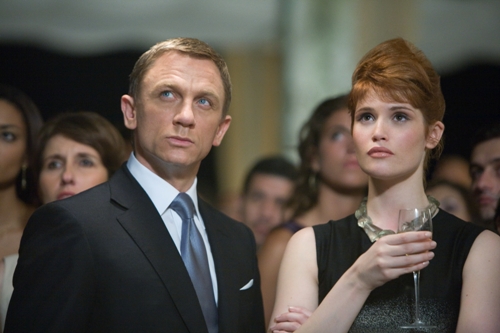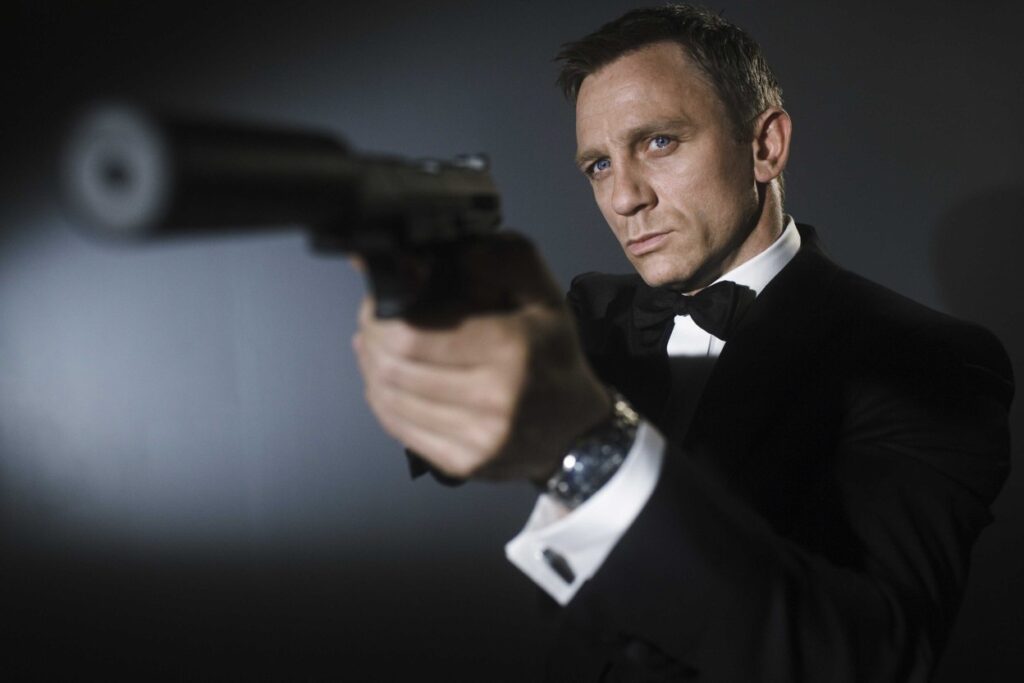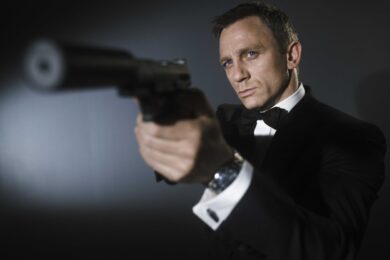Pierce Brosnan once described the enduring appeal of the James Bond movies thus: “It’s the women, the gadgets, the sex, the romance, the fantasy world, the ultimate hero”. Now times may have changed and Casino Royale may have shifted Bond’s persona into something straining for gravitas, but for Quantum Of Solace to give us only one out of the seven perks – the gadgets – is bad. Very bad. It commits the cardinal cinematic sin of being both boring and morbid simultaneously (even Tarkovsky knew how to be one or the other). It lacks any semblance of wit, soul, sharp dialogue or characterisation. A stream of unrelated, un-involving, crash-bang-wallop action sequences (the expected punch-ups, car chases, explosions, boat chases, plane chases) follow one another with scant regard for storyline or motivation. It’s an expensive yawn.
It will nevertheless be promoted and analysed across the media, but few will dare to risk the wrath of the machine by pointing out that the 22nd Bond movie in a patchy, over-adored series, is very possibly the worst Bond film ever.
This is quite shocking when you consider how hard it’s trying to be perceived as “good“ or even “smart“. Director Marc Forster gave us Monster’s Ball. Among the writers is Paul Haggis of Crash and Million Dollar Baby. Daniel Craig is a good-looking screen presence who must sincerely believe the reinvention of Bond as a cross between Matt Damon in the Bourne trilogy and Charles Bronson in Death Wish is more of a valid venture than the franchise’s glamorous, hollow history. But he is given so little to say, and such minimal depth, that, ironically, this reconstructed Bond is more cartoon-like than the intentionally cartoon-like fighter/lovers of the past decades.

The story’s all over the place; a royal, disjointed, nonsensical mess. This joyless Bond is glowering because his amour, Vespa from Casino Royale, was killed, so he feels obliged to bump off lots of enemies, much to the annoyance of Judi Dench’s M. For little reason other than to make use of the film’s considerable budget, we’re propelled from Italy to Bolivia to Haiti to Austria. Decent locations, run-of-the-mill use of them. Eventually, through the general rumble and noise and product placement we’re meant to glean that Mathieu Amalric’s Dominic Greene is…The Bond Villain. Quite why is never adequately explained, and Amalric, so good in French art house films, is lost here. He wants to rob South America of its water supply, or something. He is at no point scary or charismatic, and there’s no catharsis when Bond belatedly encounters him. Camille (Olga Kurylenko) loved him and now hates him, we know not why, and that’s supposed to suffice.
As for the Bond girls, they barely register and are soon forgotten. Kurylenko is a sidekick with photogenic lips and she and Bond never spark. Just to prove he’s not gone all gay or anything, Bond beds Gemma Arterton’s MI6 rep Fields, rather randomly. Despite months of magazine build-up, Arterton gets a whole ten minutes of screen time, in which she’s first shagged (off screen, after the limpest Bond chat-up ever) and then killed (in a lazy “homage” to Goldfinger that desperately overstates the case for oil being the new gold). The Casanova pick-up line which seals the deal is, “I can’t find my stationery. Will you come and help me look for it?“ One for the annals. The climax – rather like Gemma’s, we must assume – is anti-climactic. The ludicrous title is never explained. The theme tune by Jack and Alicia is vapid.
It’s one thing to want to come over all John Le Carre and Graham Greene about the dark heart of spying but at least those guys could form sentences. And if you take all the smirking and camp out of Bond, you’re not left with much of a USP. Chris Nolan successfully re-imagined Batman with style and substance and a story. The Bond corporation seem to think you can just turn up, throw money around, and the audience will provide the light and shade. In a splurge of I’ve-seen-Nolan-make-it-work, Forster sheepishly echoes Nolan’s penchant for peripatetic cross-cutting and rapid editing between parallel chases/fights, but without the lovingly-detailed atmosphere or narrative arcs. Thus crescendo upon crescendo, results in not a cumulative effect, but chaos.

The intention here, clearly, was to release the safety catch, run on adrenalin and assume the punters would be swept along for a meaningless thrill ride. Instead, it’s a car crash. And then another one. And then another one. For all the huff and puff about how 21st century Bond is deeper and darker and more relevant, this is a tawdry monument to dumbing down, a buff, impotent body without a skeleton. Shaken not stirred? If the best Bond films ran on semi-sophisticated, uplifting flirtation, this is like being raped by a sociopathic special-effects budget with acute depression. And where’s the fun in that?
Awfully, awfully poor. It’ll be huge.



